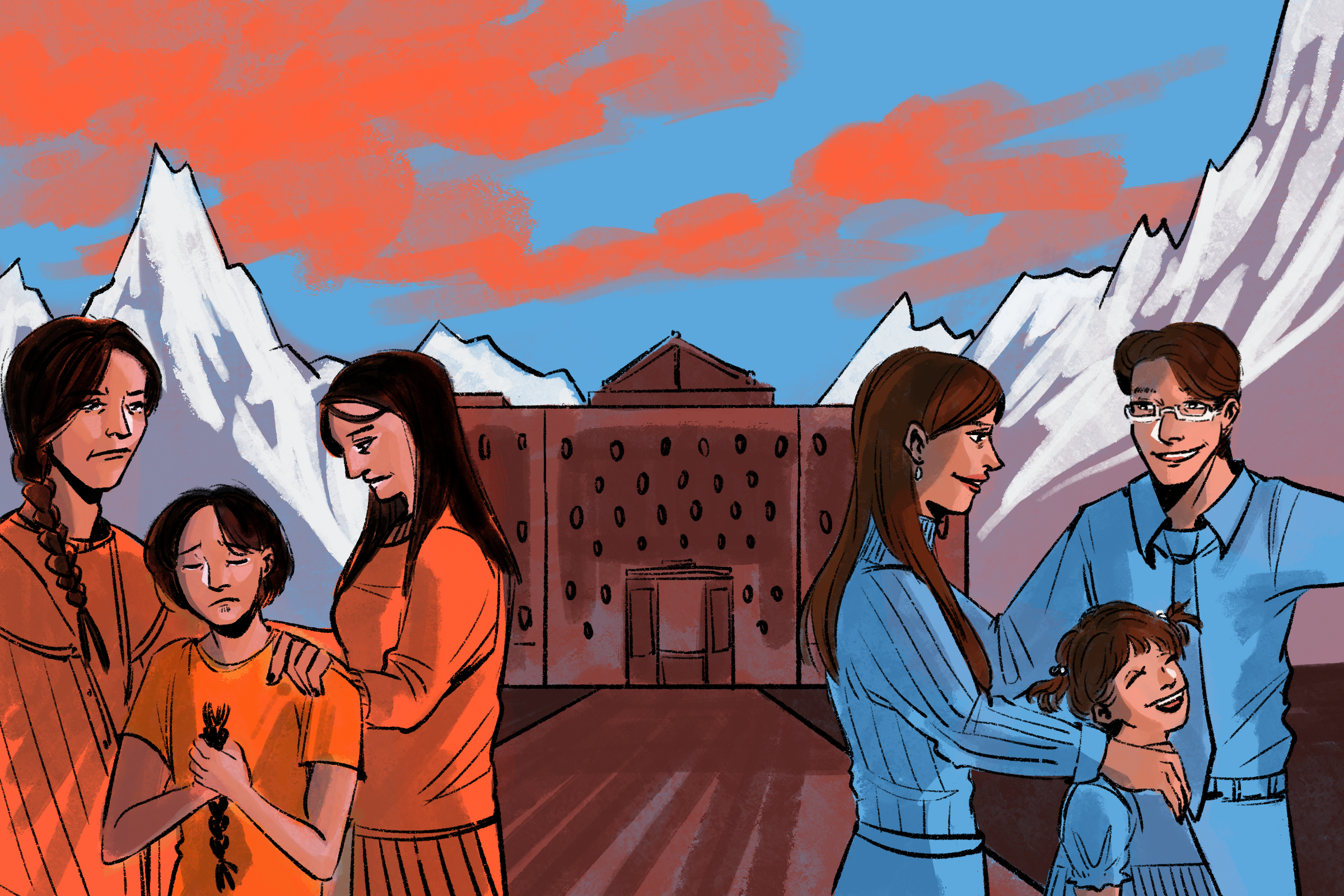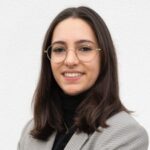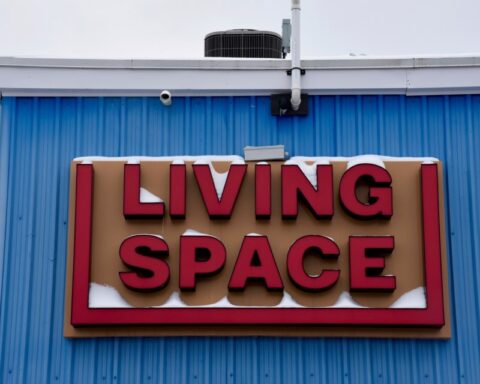“My first week in Canada, I remember watching the news in my Airbnb when I first heard that mass graves had just been found [near a former residential school],” recalls Chafic Mouharam, 28. “The news really upset me.”
Chafic, a Toronto-based data engineer, had never heard of Canada’s colonial history before coming to Canada. He is not alone.
Lack of knowledge
In the Truth and Reconciliation Commission’s final report, released in December 2015, Call to Action 93 calls on federal authorities, in collaboration with Indigenous organizations, to review “the information kit for newcomers to Canada and its citizenship test to reflect a more inclusive history of the diverse Aboriginal peoples of Canada, including information about the Treaties and the history of residential schools.”
Laura, 29, who would like to remain anonymous, laments the severe lack of resources and information on Indigenous history available to newcomers. Even after studying social sciences and humanities, the community manager says she “heard a lot about Francophone and Anglophone issues, “what she calls “mainstream history,” but almost nothing about Indigenous peoples.
Alana Alvarez, a 24-year-old university student, shared the same observation. Having grown up in Mexico, home of several Indigenous communities, she says she was surprised by the lack of representation of Indigenous culture in the Canadian public space. “I feel like there were a lot more resources and presence [in Mexico] than here on a day-to-day basis,” she says. Alvarez explains that she became truly aware of issues related to Indigenous communities when her university, Toronto Metropolitan University, was renamed because it carried the name of Egerton Ryerson, a former minister of education who was involved in the creation of residential schools for Indigenous peoples.
“My whole perception of Canada as a fairytale country fell apart,” says Alvarez. “We are benefiting from the power and wealth this country has taken from them,” she says.
In face of this lack of knowledge, some organizations have worked toward building bridges between Indigenous peoples and immigrant communities. For several years now, the Regina Open Door Society (RODS) has been offering the Youth Indigenous Education Workshop, a series of presentations for young newcomers between the ages of 13 and 24, facilitated by educators, artists and storytellers from Indigenous communities.
The communication manager, Victoria Flores says the program is both composed of practical activities, such as cooking and dancing, and a more theoretical component through which newcomers can learn about Indigenous peoples’ cultures and histories.
Tackling stereotypes
Flores, who immigrated to Canada from Bolivia at the age of 16, says she heard several hurtful stereotypes about Indigenous peoples when she arrived on Turtle Island. The RODS workshops resonate with her on a personal level as she comes from a Quechua family and saw how colonization impacted and marginalized Indigenous communities back in Bolivia.
Joely BigEagle-Kequahtooway, one of the facilitators, says reconciliation cannot happen without truth. She sees her duty as to educate anyone crossing her path, including newcomers, about Indigenous cultures and histories.
“I was brainwashed as a youth to believe that my people, my culture, were dead […]. I spent a good part of my adult life unlearning that,” she shares. “My culture is still alive — we have ceremonies, languages, old oral traditions, connection to the land, and a rich history. I have a mission in life now to share what I’ve learned with everybody.”
BigEagle-Kequahtooway says workshops like this and direct interactions with Indigenous peoples are important for tackling the stereotypes they are subject to. For instance, she said that some immigrants have reported to her having been told to be suspicious of Indigenous peoples. These workshops also challenge misconceptions such as Indigenous peoples belong to the past, she adds.
“Some of the literature out there says that we’re all dead. So, how do you overcome that? Well by telling [newcomers] ‘no, I’m alive and this is who I am,’” she said.
Reconciliation
Despite the lack of knowledge about Indigenous history and colonial issues, do people of immigrant backgrounds have a role to play in reconciliation?
“It’s an internal conflict,” admits Alvarez. “As an immigrant, I don’t feel responsible for colonization, but at the same time, I’m here in this settler country and I benefit from all the colonial structures,” she says.
“Nevertheless, I think immigrants are an important part of reconciliation because many of them were oppressed in their home countries,” the young student argues, pointing out that domination can come from former colonial powers as well as from imperialists. “So they know what it feels like to be oppressed.”
Chafic, who is originally from Lebanon and educated in a French school, says he was mostly exposed to a discourse that glorified colonial power until he came to Canada. He says he “became aware of issues related to colonialism, and then [began] to apply this critical thinking to the history of Lebanon.”
Reflecting on the colonial history of his home and host countries, Chafic admits that “although it’s not my place to say it, I would rather have immigrants, Indigenous and whites in Canada than just Indigenous and whites. He explains: “It adds to the diversity, it makes the minority stronger,” a minority he believes can join with First Nations, Inuit and Métis in their struggles.
According to BigEagle-Kequahtooway, it’s time to open more conversations between the diverse communities that compose Saskatchewan, who often live in silos, isolated from each other. She says that as the province is becoming more diverse, it raises the question of the role Indigenous peoples have to play in envisioning a new future of living together.
She adds that more than ever, Indigenous communities need allies, but above all accomplices, a role that could be endorsed by immigrants. “We have literally been killed for speaking our truth. So we need accomplices to be that barrier, that protection around us, while we find new ways to live on this land,” she explains.
Recognition
While there is still a long way to go towards reconciliation, and the role of people of immigrant background in reconciliation has yet to be defined, some of the Truth and Reconciliation Commission’s calls to action have already been heeded.
This is the case with Call 94, which suggested amends to the oath of citizenship and that led to legislative change. Since 2021, the oath that candidates for Canadian citizenship must take includes respect for Indigenous rights and treaties signed between Indigenous communities and the colonial state.
Newly minted Canadian citizen Hillary Stephen — who prefers to use a pseudonym — admits she was taken aback by the prominence given to Indigenous peoples in the process: from questions about Indigenous heritage and cultures on the test to the judge’s speech during the ceremony, the 12-year-old who came to Canada from Nigeria says she has always been sensitive to colonial issues and admits she was “pleasantly surprised by the acknowledgment of Indigenous heritage throughout the process.”
Despite what may be seen as a step towards reconciliation, researcher and historian at the Canadian Museum of Immigration Steven Schwinghamer criticizes the very basis of Canada’s immigration system: “In terms of the Treaties, I question how we can have the authority to bring people into what often happens to be unceded, or sovereign, Indigenous territory,” he said.
“This is one aspect of the continued assertion of colonial power” in Canada.
________________________________________________
This is the second article in our two-part series exploring the relationship between the history of colonization and immigration in Canada. You can read the first article in the series here.
Après l’obtention d’un Baccalauréat en Science Politique, Daphné commence sa carrière en journalisme dans son pays natal, la Suisse. Elle décide ensuite d’immigrer à Vancouver – territoires non-cédés des Nations Musqueam, Squamish et Tsleil-Waututh. Avant de prêter sa plume au New Canadian Media, elle a écrit régulièrement pour le journal bilingue La/The Source. Soif d’apprendre, Daphné a été récemment sélectionnée pour une Maîtrise en Journalisme à l’Université de Colombie-Britannique qu’elle commencera en septembre 2022. Elle se passionne pour les enjeux de justice sociale, en particulier lorsqu’il s’agit des personnes réfugiées et des communautés autochtones et 2LGBTQ+.
Daphné Dossios has a Bachelor in political science from her home-country Switzerland. She is passionate about social justice issues, particularly when it comes to refugees and Indigenous communities and 2LGBTQ+. Daphné is continuing her studies in journalism at the University of British Columbia. She acknowledges writing on unceded territories of the Musqueam, Squamish and Tsleil-Waututh Nations.
Adèle Surprenant est journaliste indépendante. Elle a travaillé en Amérique du Nord, au Moyen-Orient, en Afrique du Nord et en Europe, et s’intéresse aux questions liées à la migration, au genre, au travail et aux mouvements sociaux.






